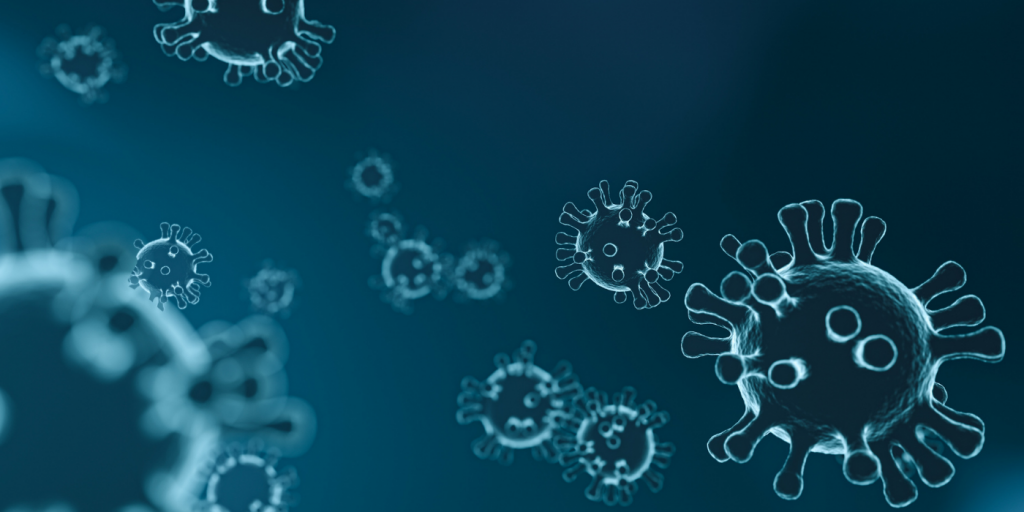Have we learned from past epidemics?
| 26 July, 2021 | Developers f1000 |

This blog was informed by a series of tele-conevings around science and policy engagement in response to COVID-19 in Africa.
Sub-Saharan Africa is not new to infectious disease epidemics. We have learned from Ebola, cholera, and HIV; in this respect, we have the advantage of experience compared to other regions of the world. So why are we re-inventing the wheel when it comes to identifying who is vulnerable in this Covid-19 pandemic?
I use Uganda as an example, but the lessons are applicable to many countries in Sub-Saharan Africa. The first wave of Covid-19 built up in April 2020, and with the introduction of lockdown, the Ugandan government released a list of vulnerable groups that had been prioritised to benefit from cash handouts. Teachers in private schools, artists, dramatists, and taxi drivers were among those to be offered a one-off Covid-19 relief payment equivalent to US$30 to help them endure the effects of on-going restrictions.
Has the Covid-19 pandemic re-defined vulnerability? Are we witnessing the ‘new vulnerable’ with the advent of Covid-19? What of Uganda’s non-salaried low-income workers in the informal sector who continue to bear the brunt of ‘lockdown’ measures? These people live hand-to-mouth and are hard-pressed to work from home compared to their salaried, public sector counterparts.
In the case of HIV and AIDS, for over three decades, national HIV responses defined ‘key populations’ and what vulnerability meant in the context of risk of infection. Sex workers, men who have sex with men, and prison populations were designated by the United Nations Agency on AIDS (UNAIDS), as “key populations” that merited targeted interventions.
Another contribution from the global HIV response is the pro-poor strategy for expanding national coverage of HIV interventions to all, regardless of ability to pay. These measures include HIV testing, free condoms in restrooms, free male medical circumcision, and free HIV treatment; over the past two decades, over $500 billion has been mobilised globally to make access to HIV interventions free to users. This global HIV response has taught us the power of international resource mobilisation to tackle pandemics and informs our efforts to promote free Covid-19 testing and vaccines. It was often said that the HIV virus did not need a passport to travel to New York from Nairobi: we are all in this together. The same is true for Covid-19.
In Uganda, pro-poor innovations for expanding HIV treatment were implemented by the private health sector using a ‘Robin Hood’ model. Select elite private providers such as the Infectious Diseases Institute (IDI) clinic based at Mulago, the national referral hospital, charge high-income individuals high service charges at after-hours clinics and then plough back the proceeds to benefit the poor [i].
During the Ebola outbreak in West Africa, interventions devised in Liberia, Sierra Leone and Guinea targeted the most vulnerable households affected by containment measures such as restricted movement. In Liberia and Sierra Leone, food aid distribution and nutrition support involved international agencies such as Save the Children and Irish AID, while USAID issued vouchers for crop seeds to poor households to kick-start food production. In addition, unconditional cash transfers were provided to support poor families and children, similar to interventions in Kenya and South Africa to mitigate lockdown effects during the first Covid-19 wave.
We have learned from our responses to the initial Covid-19 waves that corruption is a fundamental barrier to extending relief to vulnerable groups. In Uganda, in March 2020, the private sector led in contributions to a national basket fund for Covid-19 relief announced by the Uganda government. However, disturbing reports of lack of accountability and misappropriation of millions of dollars led to the private sector shying away from a similar initiative when the second lockdown was announced early June 2021.
Uganda has learned from the pitfalls of its Covid-19 relief effort in the initial wave. There were widespread press reports of pilferage of maize flour and beans intended for distribution to poor people in Kampala. Common tales of corruption led to the prosecution of high-level technocrats responsible for humanitarian affairs in the central government [ii]. In the second lockdown in June 2021, the government switched from food aid to cash handouts.
But some things don’t change. Those who were vulnerable in past pandemics continue to be so during the enduring Covid-19 pandemic. In the first wave of Covid-19, foreign students attending Ugandan educational institutions, unable to return to their home countries by the closure of international borders, pleaded for food aid on national television after they were included in government Covid-19 relief efforts. While refugees and immigrants continue to be excluded from food aid and cash handouts by government.
Some analysts in Uganda have called for a national vulnerability register for use during emergencies, one that can be continually updated [iii]. In addition, we need to improve the institutional memory of how we have addressed vulnerability during past epidemics.
[i] Twimukye, A., King, R., Schlech, W., Zawedde, F.M., Kakaire, T. and Parkes-Ratanshi, R. (2017). Exploring attitudes and perceptions of patients and staff towards an after-hours co-pay clinic supplementing free HIV services in Kampala, Uganda. BMC Health Services Research 17(1):580. doi: 10.1186/s12913-017-2524-5. [Accessed 7 July 2021].
[ii] Athumani, H. (2020). Top Ugandan officials arrested over Covid-19 purchasing scandal. Voice of America, 9 April. https://www.voanews.com/science-health/coronavirus-outbreak/top-ugandan-officials-arrested-covid-19-purchasing-scandal. [Accessed 7 July 2021].
[iii] Mujuni, B. (2021) COVID-19 pandemic and Uganda’s need for equitable social targeting and registry.CEO, 22 June. https://www.ceo.co.ug/covid-19-pandemic-and-ugandas-need-for-equitable-social-targeting-and-registry/. [Accessed 8 July 2021].